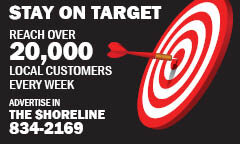By Chris Lewis | Aug. 13, 2020
Mount Pearl’s Don Kelly has a lifetime’s worth of hockey memories.
It was back in 1974 that Kelly first registered as an on-ice official. Little did he know at the time that this step in his life would be the start of an over 40-year career officiating hockey games across the province.
It was during his time as a player in the Mount Pearl Intertown League that Kelly first discovered an interest in refereeing
At that time, the game of hockey was a much different sport than it is today. Kelly described it as “drag ‘em out and sock ‘em” hockey – so much so, that he felt it was starting to get a bit out of control. Kelly went on to become the president of that league, and it was through his contact with fellow Newfoundland hockey dignitary, Jack Reardigan, that he was able to keep the game’s players with at least a majority of their teeth left in their head. The two collaborated and began hosting games with Reardigan’s influence on the linesmen.
Kelly admitted that at first, the handling of the games within the league was not the most popular choice among the four teams, but Kelly said he felt obligated as president to keep at it, and continue trying to help out.
As time went on, Reardigan found himself taking on a similar role to try and keep hockey in the Harbour Grace area under a bit more control.
“He was going to go out there with one of his boys, and that’s when he called me and asked me if I’d be interested. I was, and that’s when it all started,” said Kelly. “That’s when I branched out of the local games into that.”
Kelly well remembers the many Friday nights that he and Reardigan would venture to the S.W. Moores Stadium in Harbour Grace to officiate those games before some of the most vocal and vociferous hockey fans in the province.
As minor hockey in the province began to expand across Newfoundland, Kelly found himself taking part in those games as an on-ice official, in the few nearby rinks that existed at the time. By the time the Mount Pearl arena opened, Kelly and his fellow refs joined forces to form the Mount Pearl Referee’s Association, which he wrote the constitution for and eventually went on to head as its president.
“We were at that for about 10 or 15 years, and the Goulds actually started it up not long after us,” Kelly said. “We helped develop referees over there, and just lent them a hand when we could.”
Kelly’s growing experience and credentials as a ref in the various minor and senior leagues around the region eventually led to him, in 1985, becoming an instructor and supervisor with Hockey NL’s officiating program – a role he held until 2017.
In 1995, Kelly became the chairman of the organization’s rules committee. This, along with being appointed as Supervisor of Officials in 2000, and being elected Referee-in-Chief for Hockey NL in 2005, meant Kelly was spending a majority of his time at rinks or talking hockey – something he says he wouldn’t have traded for the world.
“I enjoyed it from every perspective,” he said.
Throughout his years as a referee, Kelly was involved in some of the sports highest calibre play, such as the Herder Memorial Trophy Finals, and the Air Canada Cup national midget championship staged in St. John’s in 1989.
For all of his work in Newfoundland hockey, Kelly was one of the most recent inductees in the Hockey NL Hall of Fame as a builder. He described that phone call as a shock to him, but an overwhelmingly pleasant one.
Through such a lengthy career, Kelly was especially honoured to have been appointed Referee-in-Chief. That allowed him to try and influence the game for the better, something that he takes great pride in. The role saw him to come to terms with a number of things as Hockey NL’s referees were being developed over the years.
“Number one, because of our location (as a province), it was hard to get our officials up to a national standard,”Kelly said. “We tried to implement things in our program to do just that, though.” Referees-in-Chief for Hockey Quebec, Ontario, and the Ottawa district were invited in at various points to share their skills and mentorship. “To me, that really validated what I was doing, knowing that I could help develop young officials,” said Kelly.
It was also a hurdle to include players from other parts of the province, he said. Since so many of the games took place on the east coast, there was a common misconception that the minor and senior leagues were strictly an Avalon region thing.
“A good 80 per cent of the games were taking place on the east coast, so I had to try and take a program that, for the most part, people thought was only concerned about the Avalon, and turn that around. It was a big challenge,” he allowed.
While Kelly has nothing but good to say about his time on and off the ice, he will admit that anyone looking to get into officiating now needs to have a thick skin.
He described hockey officials as being part of the “third team.” At no time will a ref be on the good side of both teams and the only people in the arena who are going to support someone’s calls – regardless of team affiliation – are your fellow referees, he said.
“We’ve had a lot of officials quit on us. When they leave the arena after giving little Johnny a five-minute penalty, and see that young man’s father out in public, he might not have anything good to say to that official,” Kelly said. “But, when people ask how you deal with all the things people say, I just explain that those people aren’t talking to you directly. They’re talking to a black and white sweater. Sometimes, what they say, it might hurt. But, for the most part, once the game is over it’s over. People are angry at the ref, not at you personally.”
Kelly said that although it can take some time to accept that, it helps to officiate games outside of one’s own hometown, where the stands are full of strangers for the most part, as opposed to people you know on a personal level.
Although Kelly has since retired from his positions with Hockey NL, he has no shortage of fond memories to look back on while enjoying his retirement.
“It was always so much fun, though. The thing I miss most? Going into that cold rink at 8:00 on a Saturday morning, getting a coffee, going in and talking to the officials,” said Kelly. “Talking to them after the game about what they did and how they can improve and work on for their next game. Then, walking away and knowing that you actually did some good for them.”

